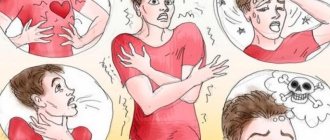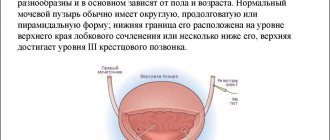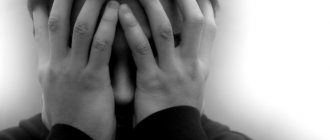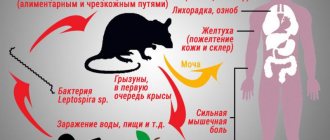What is cardioneurosis?
Cardioneurosis is a disorder of the functional activity of the heart that is not associated with somatic pathologies.
The main cause of the development of heart neurosis is psycho-emotional shock. Due to a prolonged stressful state, or a one-time emotional shock, a person may unexpectedly develop heart disease.
Pain in the heart during neurosis can be very varied: stabbing, pressing, dull, burning, bursting. They can radiate to the shoulder blade, neck, arm.
They are accompanied by strong fear for one’s life, a strong increase in heart rate, tachycardia, and shortness of breath.
A person can feel the beating of the pulse literally throughout the body. The temperature rises briefly and then drops, down to 36 degrees. Taking nitroglycerin does not provide relief.
Signs and symptoms of the disease
The clinical picture of this disorder consists of general and cardiac manifestations. Signs of general cardiac neurosis indicate problems with the nervous system. These include:
- chronic fatigue;
- increased fatigue;
- absent-mindedness;
- constant feeling of anxiety;
- irritability;
- sleep disturbance;
- tearfulness.
Symptoms of cardiac neurosis
Sometimes the symptoms of this disorder manifest themselves as panic attacks, in which a person experiences difficulty breathing - he feels short of air, tries to inhale convulsively, and experiences severe fright. Also, another symptom of this pathology is an increase in body temperature to subfebrile levels, which remains at such numbers for a long period.
If we talk about cardiac symptoms of cardiac neurosis, the main one is pain, which can be localized either in the organ area or behind the sternum, and radiate to the back, shoulder blade and even neck. The pain can be of a different nature - dull, stabbing, paroxysmal, and its duration can also be different - from several minutes to several days. The main difference between cardioneurotic pain and pain associated with other heart diseases is its appearance at the peak of excitement or immediately after stress.
It is important to remember that the appearance of pain in such a disorder is central in nature and is not associated with morphological disorders in the heart. Doctors suggest that sometimes such pain occurs due to self-hypnosis - a person thinks that severe stress can cause heart problems, and after some time he feels real pain in the cardiac region.
Other cardiac and vascular symptoms of cardiac neurosis are:
- increased heartbeat that the patient feels, and this causes him to panic;
- increased heart rate;
- feeling of a rush of blood to the head;
- feeling of heat;
- paleness or redness of the skin;
- coldness of the extremities.
Causes (pathogenesis) of cardiac neurosis
The pathogenesis of cardiac neurosis lies in the fact that inconsistency begins to appear in the functioning of the excitatory and inhibitory mechanisms of the cerebral cortex. The lack of synchrony in their work causes a disruption in the functioning of the autonomic centers, which, in turn, are responsible for the activity of internal organs.
This is the general outline of the mechanism of this disease.
Most often, the first cardiophobic attack follows overexertion, acute conflicts, disappointments, separations, feelings of abandonment and loneliness. The death of a loved one from heart disease can also cause cardiac neurosis. Even healthy and young people cannot help but worry when they witness death from a sudden heart attack, which can happen at any time. There are a number of other reasons that contribute to the appearance of cardiovascular neuroses:
- acute or long-lasting mental experiences;
- wrong lifestyle;
- hard study or work that requires constant concentration and, in the end, leads to mental fatigue;
- chronic infectious diseases;
- bad habits (smoking, coffee and alcohol abuse), multiplied by long-term consumption, can cause chronic intoxication;
- hyperfunction of the thyroid gland or disruption of other endocrine organs;
- deficiency of sex hormones in the blood (this is how symptoms of heart neurosis manifest in women during menopause).
Causes of cardiac neurosis
The factors underlying psychosomatic illness are conventionally divided into physical and psychogenic, often they are closely intertwined:
- mental overload caused by intense study or work rhythm,
- physical fatigue - occurs in men and women engaged in hard work, athletes,
- improper distribution of work and rest, sleep deficiency,
- business trips, regular travel or flights,
- sedentary lifestyle,
- physical injuries – damage to the heart and blood vessels as a result of surgery,
- childhood psychological trauma,
- post-traumatic syndrome (for example, in those who served in the army during combat operations),
- predominance in the diet of foods rich in fats, salt, spices,
- sexual dissatisfaction,
- intoxication with alcohol, drugs, harmful components of cigarette smoke,
- psychophysical problems against the background of conflicts, stress, phobias and manias, constant anxiety, negative attitude,
- hormonal imbalance - in adolescents during puberty, in women - during pregnancy, menopause, poor functioning of the ovaries.
Psychogenic causes especially clearly affect the cardiovascular and nervous systems. This is also evidenced by statistics: cardiovascular disorders are more typical for patients prone to anxiety, depression, and hypochondria. In physically active and mentally stable people, attacks are recorded extremely rarely.
Please note: Sometimes cardioneurosis appears as a complication after a cold, viral or bacterial infections, inflammatory processes in the heart and blood vessels (myocarditis, pericarditis, endocarditis), structural defects of the heart muscle, rheumatic fever.
Causes affecting the development of pathology and symptoms
The problem of cardiac neuroses lies in the imbalance between the excitatory and inhibitory mechanisms of the cerebral cortex. Such inconsistency causes disruption of the vegetative centers that control the functionality of organs. The impact of other factors cannot be ignored, including:
Why does cardiac neurosis occur?
Many people are interested in the question of what cardioneurosis is and what reasons lead to its development. This disease occurs for many reasons and is manifested by psychological discomfort and atypical physiological sensations due to a malfunction of the autonomic nervous system. An attack of the disease occurs as a result of exposure to a negative stress factor on the body. People who suffer from psychoemotional disorders are more susceptible to cardioneurosis than others.
The development of cardioneurosis is caused by a malfunction of the autonomic nervous system. Its occurrence is provoked by the following factors:
- mental disorders that are triggered by stress;
- mental or physical overload;
- hormonal changes caused by pregnancy, puberty, taking hormonal drugs, menopause.
The risk group includes overly emotional young people. An attack in such people occurs suddenly due to a minor irritant. At older ages, neurosis is provoked by Parkinson's or Alzheimer's diseases.
In addition, the following reasons lead to heart neurosis:
- complications of rheumatic fever;
- pericarditis, endocarditis, myocarditis;
- malformations of the heart muscle;
- cold;
- bacterial and viral infections;
- irregular work schedule;
- eating junk food;
- drinking alcohol;
- smoking;
- abuse of caffeine and strong tea;
- non-compliance with sleep patterns.
Diagnostics
The diagnosis of cardiac neurosis is made by exclusion. The disease is polysymptomatic, so during the examination, complaints can only confuse the doctor. To confirm it, it is necessary to exclude all possible diagnoses of diseases of the cardiovascular system: heart defects, ischemic heart disease, myocarditis, as well as pathologies of the musculoskeletal system, respiratory and digestive organs, which can also cause discomfort and pain in the chest area. The examination begins with an examination, then tests are taken and instrumental research methods are carried out:
The presence of cardiac neurosis is indicated by:
- no changes in the cardiovascular system;
- the connection between signs of the disease and stress or mental trauma is revealed;
- sedatives have a clear positive effect;
- Psychotherapeutic methods of treatment are effective.
First of all, the attending physician must exclude any organic lesions of the cardiovascular system and confirm that all changes are functional in nature.
And also carry out differential diagnosis with other diseases (for example, the symptoms of thyrotoxicosis and cardioneurosis are similar). Of great importance for the diagnosis of cardioneurosis is the collection of anamnesis, in which not only traumatic situations are clarified, but also genetic predisposition and the type of reaction of the nervous system.
Further, instrumental (blood pressure measurement, ECG, echocardiography, 24-hour blood pressure monitoring, EEG, fibrogastroscopy, assessment of external respiration function) and laboratory research methods (general blood and urine analysis, blood biochemistry, blood electrolytes) are used.
After receiving all the results of the study, the patient should be referred to a consultation with other specialized specialists - a cardiologist, neurologist, endocrinologist, gynecologist, gastroenterologist, psychotherapist, ophthalmologist.
The diagnosis of cardiac neurosis is made by the method of exclusion. Since the symptoms of cardiac neurosis are similar to those of other diseases, it is difficult to immediately prescribe the necessary treatment.
To make a diagnosis, procedures such as ECG, cardiac ultrasound, and Holter monitoring are prescribed. This allows us to exclude organic heart damage.
And then, based on anamnestic data, a diagnosis of cardioneurosis is made.
Cardioneurosis does not cause organic pathological changes in the heart muscle and its arteries. To exclude various diseases, the patient must use diagnostic capabilities.
Typical symptoms
The course of cardiac neurosis can be different - from short-term mild periodic attacks (once every few months or weeks) to constant (daily) occurrence and intensification of symptoms. In any case, the manifestations of the disease are associated with tension in the nervous system - stress, insomnia, anxiety, mental work, etc.
Classic symptoms of cardiac neurosis:
- Pain in the heart area, behind the sternum, in the left half of the chest. They can be represented by mild discomfort, heaviness, squeezing, burning, stabbing and other pains.
- A feeling of trembling or freezing in the chest (slow heart rate). Patients focus on their sensations that the heart seems to be bursting out of the chest or stopping.
- General weakness and impotence.
- Changes in blood pressure.
- Trembling in the body, numbness in the arms and legs.
- Headache and dizziness.
- Heart rhythm disturbances - slight acceleration (tachycardia about 90–100 beats/min), slowdown (about 60 beats/min), extrasystoles (unscheduled contractions and interruptions).
- Dyspnea.
- Feeling of fear, anxiety.
- Anxiety and insomnia.
- Pale or reddened facial skin.
Heart neurosis is a kind of transitional state between normality and pathology. By itself, it rarely disrupts the general condition of patients, but can provoke the occurrence of more severe diseases (atrial fibrillation, angina pectoris and even heart attack, neurotic personality disorder).
Treatment
Like any psychosomatic disease, cardiac neurosis requires an integrated approach from the attending physician and patience on the part of the patient. There are two main types of treatment for cardiac neurosis:
- physiotherapy;
- psychotherapeutic.
Self-treatment of cardioneurosis makes sense if the disorder is not in an advanced form and has appeared relatively recently. Among the independent treatment methods are:
- therapeutic massage, physical activity;
- hydrotherapy, hardening;
- balanced diet;
- eliminating bad habits;
- adherence to the daily schedule;
- good sleep;
- daily walks in the fresh air.
It is also necessary to eliminate the impact of stress on the psyche: do not participate in conflicts, create a calm and peaceful environment for your nervous system.
The main method of treating cardioneurosis is psychotherapy. Currently, good psychotherapists are able to combine non-drug treatment methods (psychotherapy) with medications.
Only in this case can a good effect be obtained from the treatment and all symptoms of cardiac neurosis can be eliminated. The psychotherapist identifies the “grain” of emotional experiences.
Unfortunately, in life it is impossible to exclude many traumatic factors, but the goal of psychotherapy is to teach a person not to react “with his heart.” The most common psychological symptoms of cardioneurosis are dissatisfaction with oneself, one’s personal life, work and, as a consequence of these problems, a decrease in the immune system, overwork, signs of exhaustion of neuro-regulatory mechanisms.
Non-drug methods of treating cardioneurosis
Aimed at strengthening the nervous system in general, and the autonomic system in particular.
When symptoms appear, it is important to decide how to treat cardiac neurosis, although this task is quite complex, since it is difficult to name specific groups of pharmaceuticals.
In any case, the initial direction of therapy is to relieve the patient of psychological discomfort.
In addition, the daily routine, work, and rest are reviewed, nutrition is adjusted, and consultations are held to normalize the situation in the family and at the workplace. As for medications, the determining factor is the patient’s well-being and complaints. Treatment begins with herbal preparations with a mild calming effect - and in this case, traditional medicine comes in handy. Of the pharmaceutical agents aimed at stopping attacks, the following are prescribed:
- Mild antidepressants - Amitriptyline, Azafen and others.
- With the development of tachycardia, β-blockers - Trazicor and the like.
- For sleep disturbances, mild sleeping pills (it should be noted here that such drugs are addictive, so the course should be limited to three weeks of use).
- Physiotherapeutic procedures.
- Use breathing exercises and autogenic exercises.
Let's look at how to treat heart neurosis using traditional medicine recipes.
The following recipes will help reduce increased nervous excitability:
1Take two tablespoons of peppermint, two tablespoons of trifoliate, one tablespoon of valerian root, one tablespoon of crushed hop cones.
Brew three tablespoons of mixed herbs with two glasses of boiling water, let it brew for two hours. Take half a glass thirty minutes before meals, three times a day.
This category of funds is auxiliary, but in no case the basis, so relying only on traditional medicine is not recommended. In addition, before using such products, be sure to visit a doctor and consult about a particular prescription.
Adequate treatment of cardioneurosis requires the involvement of a psychiatrist or psychoneurologist. A big mistake of patients and doctors is refusing the help of specialists.
After all, conventional drugs used in cardiology do not work in this case. And the inability to relieve an attack with Nitroglycerin is known as a diagnostic sign of cardioneurosis.
Experts recommend starting to treat cardioneurosis with psychotherapy. It provides:
- reduction of general anxiety;
- distracting the patient from unnecessary negative thoughts and emotions;
- helps to set the intention for healing.
Psychotherapists will recommend classes in a group or individually, and the possibility of using auto-training. Currently, psychological attitudes that can be used on the Internet are important.
As a medicinal intervention, a patient with cardioneurosis is offered drugs from the groups of neuroleptics, tranquilizers, and antidepressants.
Of the well-known traditional drugs used in cardiology, you can use drugs that have a slight psychotropic effect (β-blockers Verapamil, Nifedipine).
The hypersthenic type of neurotic reaction requires increasing the threshold of excitability with the help of specific medications (Trioxazine, Amizil, Meprotan).
For the hyposthenic type, stimulants and restoratives are prescribed (Securinin, vitamins, tincture of Eleutherococcus).
In premenopausal age with cardioneurosis, Mildronate, Magne B6, Preductal are especially indicated. The duration of the course and dose are determined by the doctor individually.
Modern therapy emphasizes the use of nootropics, which were previously used to improve the brain's memory function. Phenibut and Pantogam are considered effective for cardioneurotic disorders.
Pantogam active is considered an improved formula of a modern nootropic
Prevention and prognosis
To prevent the appearance of heart neurosis, a person should:
stick to a daily routine, proper nutrition; sleep long enough; spend more time in the fresh air; work on your temperament, for example, attend special courses to strengthen your character.
It seems possible to prevent the development of cardioneurosis. You can fight the preconditions for the disease if you follow some rules.
It is necessary to avoid the transition of stress into a protracted phase; it is important to correctly dose the load and avoid overexertion. It is important for a person to control himself, but an important aspect is the ability to relax, get rid of negative experiences and set yourself up for the best.
If there is a long course of the disease, and there is no treatment for the disease, then the consequence of this can be not only a change in the psycho-emotional type of the patient, but also changes in the body that are negative.











